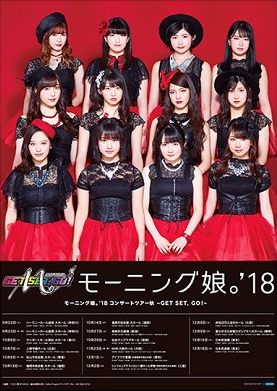Kvest Na Vuden Set Interlyud

• Little machine that could. Posted by JR on 14th Dec 2018 Finally I found a 2 Cups machine. Makes great espresso. • superb Posted by genyc on 18th Nov 2018 superb: handle with care • Great coffee as good as it gets.
_SX309_BO1,204,203,200_.jpg Download english ebook The Quest of the Silver.
Posted by Dan on 25th Feb 2018 Best coffee you can make ***** • Authentic Italian Expresso Posted by GB on 22nd Jan 2018 We love the taste of Expresso from our new stove top maker by Vev Vigano! Buyers should know that the 12 cup pot makes only about 12 oz of Expresso. Order larger than smaller when ordering these coffee makers.
• Great Tasting Expresso! Posted by GB on 22nd Jan 2018 We are enjoying our 6 cup Expresso Pot. I want to inform other buyers that this size only makes 11 oz of expresso! • Very classy, fine, makes rich espresso Posted by Pedro Castellano on 24th Jun 2017 Bought a four cup in Rome in 1999 lasted until 2017 the handle came off.
• Pretty Posted by Unknown on 19th May 2017 Got the six cup. Coffee taste great. • AWESOME!!!! Posted by JESSICA HERNANDEZ on 10th Nov 2016 Best stove top espresso machine. Highly recommend it.
Championship manager 03 04 cheats. Contents • • • • • • • • • • Historical background [ ] A product of territorial, Bophuthatswana - popularly nicknamed 'Bop' by her nationals - accepted nominal independence in 1977 from South Africa's administration. The second national unit to reach the status of a with limited but hypothetically increasing powers of self-rule, Bophuthatswana adopted as her governing document an act drafted by the former Tswana Territorial Authority under South African guidance. South Africa was adamant that elections should take place as early as 1972, but there were no political parties in the new region. Ceremony zip mediafire. This changed rapidly with the ascension of, who founded the Lekobo la Setshaba sa Bophuthatswana (English: 'Bophuthatswana National Party').
Mangope targeted rural votes and carried an easy majority in the new parliament. Although Bophuthatswana was not recognised as a unique entity by any foreign state, an estimated two million Tswana lost their South African citizenship accordingly. The 1977 Constitution made it a self-governing democracy inside the Republic of South Africa, with an area of jurisdiction spanning six black-populated districts of the designated Tswana area. Excluded were zones earmarked for white persons encompassing much of the capital and industry. Prelude [ ] Under Mangope's rule, political freedoms in Bophuthatswana deteriorated. Opponents of the state were subject to banishment, arrest, or extrajudicial harassment. The was also considered an illegal organisation.
's release in 1990 and 's subsequent opened up the possibility of reincorporating the fragmented bantustans into a unitary South African state. Although all tribal homelands ceased to exist in 1993 under an interim constitution, Mangope remained committed to the principle of Bophuthatswana's 'independence'. Tswana voters were appalled; opposition mounted but remained subject to escalating repression. Human rights groups complained that citizens were barred from attending voter education programmes and only Mangope loyalists enjoyed the. On January 1, 1994, de Klerk restored South African citizenship to Bophuthatswana residents but balked at the notion of removing its government from power.
Mangope agreed to convene with representatives from the yet refused to consider participating in the upcoming. A commission member subsequently warned that '.his [Mangope's] intransigence made confrontation inevitable'. Outbreak [ ] Civil Service strike [ ] In February, the executives of fifty-two Bophuthatswanan ministries formed the so-called 'Mmabatho/Mafikeng Crisis Committee', initially to address their role in the post-election period.
When it became apparent that Mangope would continue to oppose territorial integration for the near future the committee went on strike. Since Bophuthatswana was set to be disestablished by the South African government on April 27, they demanded their wages - and civil service - well in advance of that date. Lacking treasury funds, Mangope simply issued no response. This alarmed the Bophuthatswana Police, which joined the strike immediately.

Anarchy ensued and troops were deployed to restore order. Despite their efforts mass became widespread as appliances or furniture worth hundreds of began disappearing overnight. By Wednesday, March 9, authority had imploded. Striking staff seized the Bophuthatswana Broadcasting Corporation and took Mangope's son Eddie hostage, students boycotted classes at, and the civil servants were joined by thousands of others demanding incorporation into South Africa and the right to campaign for the election. When the security forces failed to take action, widespread disorder ensued.